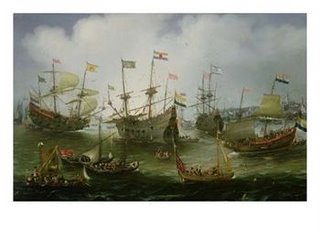Shakespeare asked a question,
"What's in a name? That which we call a rose
By any other word would smell as sweet."
--From Romeo and Juliet (II, ii, 1-2).
 |
| William Shakespeare |
If the rose were to be called by some other name would it lose its fragrance? We Indians in the post-independent era seem to be obsessed with changing names of towns and streets. We feel we are reverting back to the original name of a place. It is the tendency of the most of the rulers to give the name of their choice to their country and to the capital city.
The city of Delhi stands on seven pre-historic cities with different names in different ages and under different rulers. Once upon a time it was called Indraprastha. The city has been in existence since the time of Mahabharatha war. Similarly, the present day Kolkata was a small village on the banks of Hooghly river called "Kalighat". The Britishers, who founded their new capital city anglicised it and called it "Calcutta". The present day Bengalis, who have always called it "Kolkata" have made it the official name. But the international cartographers have refused to make any change in their maps, because Indian's penchant for changing names is difficult to keep pace with.
.jpg) |
| Calcutta (circa. 1850) |
Similarly, the British mispronounced the names of these towns Baroda, Bombay and Poona, which have now become Vadodara, Mumbai and Pune. The Sanskrit name for the present day Peshawar was Purushapura. Unfortunately, the government of Burma chose to call itself Myanmar. The word "Burma" was a diluted version of the sanskrit word Brahmadesha. At one time Cambodia was called by the Sanskrit name Kamarup.
 |
| Old Madras Railway Station |
In south-India the famous city of Madras, named by the Britishers after the Madrasas there has become "Chennai", which is the shortened version of the old name "Channapatnam". Now there is a move to change the name of Bangalore to Bengaluur, which came from the original name "Bendakaluuru", which meant boiled-beans. Trivandrum has been changed to the Tongue twisting word Thiruvananthapuram and the hill station "ooty" has become "udagamandalam"(where the rain-bearing clouds take their birth). For the British and the outsiders it will always remain Bangalore, whereas the natives have always called it Bengaluru. Inspite of all the changes Indians and foreigners continue to call these cities by their anglicised names like Bombay, Calcutta, Madras and Delhi.
Some times history plays truant with place-names. When Tippu-Sultan was ruling Mysore state,
 |
| Tipu Sultan |
he extensively renamed the towns in the islamic fashion. For example, Mysore city was called Nazarbad. Later the Wodeyars of Mysore renamed it as Mysore, but a suburb in Mysore is still called "Nazarbad". The Bangalore city has seen the disappearance of English names. In the heart of the city, near the Bangalore city corporation was Hudson circle. The Kannada enthusiasts changed the name of the circle to Kittur rani chennamma circle without bothering to find out about the antecedants of Rev. Fr.Hudson. It is an irony that Rev.Fr.Hudson is the first man to write a Kannada grammar book in English. One of the Important British town-planner, whose name had been given to the area near M.G.Road, Richmond town has been changed to Shanthalanagar, the Hoysala queen of 10th Century. Some old people still call M.G.Road by its old name Parade Grounds. The moot question is by changing names of towns and streets can we erase pages from the history books. Today in Bangalore metropolis there is a plethora of streets, suburbs and circles named after Kuvempu (National Poet-K.V.Puttappa) often leading to a large scale confusion by this excessive repetition.
 |
| C.D.Narasimaiah |
The well known English Professor Padmabushana C.D.Narasimaiah used to joke about his name as being the last remnants of closepet, his birth place. What was Ramanagara was changed by the then Maharaja to closepet to appease a British resident named close. After independence it was changed to Ramanagara, but some southern railway official in Madras in the true Tamil fashion added an 'M' and made Ramanagara into Ramanagaram. The railway station calls this town by the name of Ramanagaram. In karnataka, We have Ripponpet in Shivamoga district named after Lord Rippon, Viceroy of India and Dobbespet near Bangalore is named after a British resident. Nobody has yet thought of changing these names. I do not know what India will be called one-day in future? why not revert it to it's old name Bharatha or Bharathavarsha or Bharathakanda?









